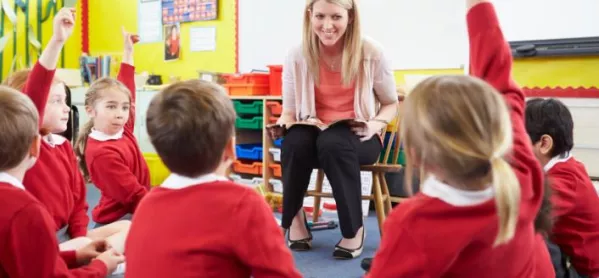For the past year, the relationship between Ofsted and the early years sector has been defined by confusion, poor communication and dwindling confidence.
What infuriates Reception and infant teachers is being portrayed as responsible for little more than preparing children for the "real" business of education, which takes place later on.
And Ofsted’s draft inspection framework includes some thoughtless wording, which doesn’t help the watchdog’s case in persuading people that it really does genuinely value early years.
For example, the draft handbook includes the sentences: “It is appropriate that, in key stage 1, teachers focus on ensuring that pupils are able to read, write and use mathematical knowledge, ideas and operations. From key stage 2 onwards and in secondary education, however, inspectors will expect to see a broad, rich curriculum.”
The inclusion of that word “however” is the verbal equivalent of a patronising pat on the head to key stage 1 and has gone down predictably badly.
Related articles
Sue Cowley, author and champion of early years, took to Twitter saying she was shocked that the draft framework specifically said it was OK to narrow [the curriculum] in key stage 1. But Gill Jones, Ofsted's deputy director of early education, tweeted back to say that “no one is suggesting it should be narrowed”.
There are other sentences that have been welcomed – in particular, the emphasis on going beyond early years data. And, of course, children should focus more on reading when they are first learning to read. Perhaps Ofsted simply means just that. Perhaps all such interpretations are misunderstandings that will be cleared up after the three-month consultation process.
But the roots of the framework reveal why the reaction from the early years sector is so unforgiving. Ofsted has published a list of the 318 research publications it used to underpin the framework, and they include Bold Beginnings, the controversial report it published late in 2017, which said Reception year was a “false start” for many children and was promptly condemned by many early years experts and teachers as “flawed and biased”.
The circular conversation around Bold Beginnings went like this: opponents said it could be read as a push for formal learning in early years; Ms Jones met practitioners to clarify that it wasn’t a push for formal learning; but the watchdog declined to put any such clarification in writing; and so, opponents pointed out, it could still be read as such a push.
Perhaps Ofsted truly does want to ensure schools offer a broad, rich curriculum and place less emphasis on testing. But, when it comes to the youngest children – particularly those in Reception – it needs to choose its words with care. Early years teachers are preparing to be the backstop against a regime they see as increasingly formal, and they are not in the mood to make a deal.




